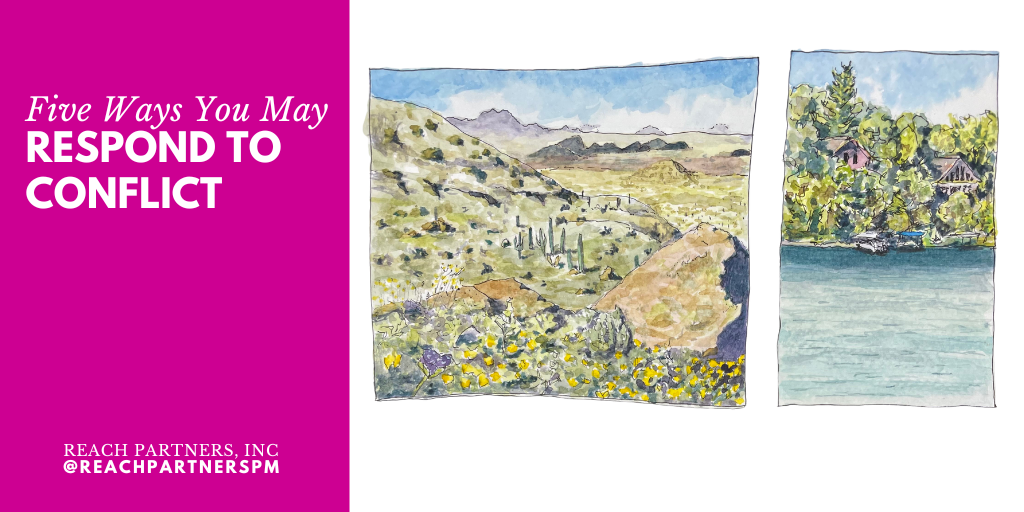|
How do you typically respond to conflict? This may not be a question we are comfortable answering, but understanding the primary way you respond to conflict can help you become more aware of your tendencies. It also can help you make better choices when you don’t agree with someone. Whether it's a disagreement with a colleague at work, a misunderstanding with a friend, or a difference of opinion within family, conflicts are a natural and inevitable part of human interaction. How we handle them significantly impacts our relationships and overall well-being. Conflict can arise from a lack of clarity between parties. In order to be our best selves within the relationship, however, it’s important to reflect on our own role within the conflict. We can only control ourselves so clarity within a conflict must start from within. Knowing how we respond to conflict can help maintain connection despite disagreement.
In fact, if we’re aware of how we respond, we have an opportunity to learn and grow while deepening our relationships. Five primary conflict styles are characterized by different approaches. It’s helpful to recognize that everyone has a dominant style, but your approach may change depending on the situation or people involved. Here are the five conflict styles: Avoidance: Avoiders tend to avoid conflict altogether. You may withdraw from the situation, change the subject, or pretend the issue doesn't exist. Here’s the challenge: While this may provide temporary relief, avoidance can cause resentment to build over time and may lead to unresolved issues. Accommodation: Accommodators prioritize the needs and desires of others over their own. While accommodating can foster harmony, it can also lead to personal dissatisfaction if your own needs are consistently neglected. Competition: Competitors are assertive and tend to focus on their own needs and goals, often at the expense of others. You may view conflicts as win-lose situations and strive to come out as the victor. While this style can be effective in certain situations, it can damage relationships if overused. Compromise: Compromisers seek middle ground and aim for a balanced solution where you and the other party make concessions. This style can be effective when both parties are willing to meet in the middle, but it may not always lead to the best outcomes. Problem Solvers: Collaborators value open communication and problem-solving. You are willing to work together with others to find win-win solutions that address everyone's needs and concerns. This style promotes healthy relationships and can lead to creative and lasting solutions. Understanding your conflict style improves communication, aids in expressing preferences, and helps you adapt your approaches. Recognizing others' styles enables tailored conflict resolution, preempting issues. Aligning your style reduces stress, prevents escalation, and minimizes damage in conflicts. Not all conflicts are resolved. And because we can use these five personas to manage how we show up and how we choose to approach our role within that situation, maybe not reaching resolution is ok. This framework gives us the opportunity and confidence to know we brought our best selves forward and in some situations that might be the best we can hope to do. – Rachel
1 Comment
Your comment will be posted after it is approved.
Leave a Reply. |
Reach PartnersYour partners in leadership. Categories
All
Archives
July 2024
|
|
|
Reach Partners, Inc
3330 Fiechtner Dr. Suite 100 Fargo, ND 58103-2321 701-271-8170 Copyright (C) 2024 Reach Partners Inc.
|

